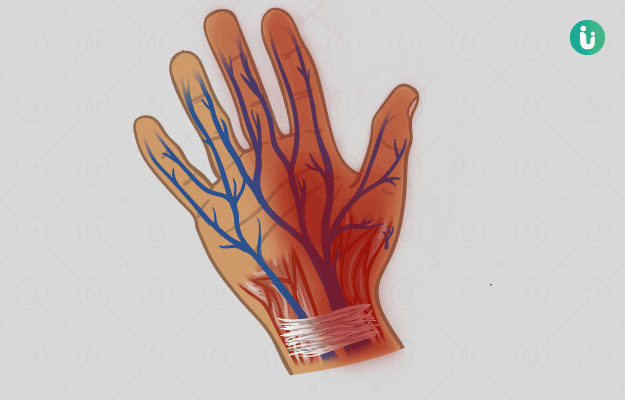Carpal tunnel syndrome is a painful condition that occurs due to compression of the median nerve in the hand. It shows up in the form of swelling, pain, and tingling sensation in certain areas of the affected hand.
The condition may occur due to an injury, fracture or repeated hand movements such as in some sports. (Read more: Repetitive strain injury)
It is diagnosed through physical examination, medical history of the patients and some tests like X-ray, depending on the possible cause of the condition. (Read more: Hand pain)
Carpal tunnel syndrome is treated through medications and splinting of the affected area to reduce movement. However, if non-surgical options do not work, doctors may suggest surgery to relieve symptoms.

 Doctors for Carpal tunnel syndrome
Doctors for Carpal tunnel syndrome  OTC Medicines for Carpal tunnel syndrome
OTC Medicines for Carpal tunnel syndrome






































